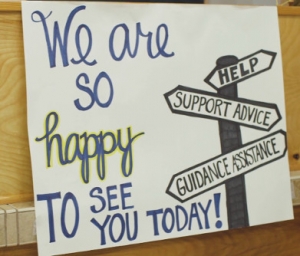 Directory of community recovery resources in the Austin area.
Directory of community recovery resources in the Austin area.
a comprehensive directory of addiction and recovery resources, primarily in and around the Austin community, but also includes other Texas listings and national links.
Comprehensive resource hub helps you find the independent, local support you or a loved one are looking for.
Find Help food, health, housing, and more in Texas.
Search for free or reduced cost services like medical care, food, job training, and more.
Learn about addiction, access resources, and find the help you need here.
Resources for Recovery Coaches
Forms, tools, guides, training docs, etc. for recovery coaches.
SAMHSA’s Recovery Resource Library
Practical resources for the implementation of recovery support services from the Substance Abuse and Mental Health Services Administration (SAMHSA).
Research to improve the effectiveness of addiction treatment & recovery efforts, to find out what is & what is not working, & why certain pathways to recovery work for some individuals & not others.
What is recovery?
The common definition of recovery is to get better from an illness or injury. Another concept is the process of overcoming an addiction or mental health disorder. The Substance Abuse and Mental Health Administration (SAMHSA) defines recovery as “A process of change through which individuals improve their health and wellness, live a self-directed life, and strive to reach their full potential.”
Through the Recovery Support Strategic Initiative, SAMHSA has delineated four major dimensions that support a life in recovery:
Health
Overcoming or managing one’s disease(s) or symptoms—for example, abstaining from
use
of alcohol, illicit drugs, and non-prescribed medications if one has an addiction problem—and for everyone in recovery, making informed, healthy choices that support physical and emotional wellbeing.
Home
A stable and safe place to live
Purpose
Meaningful daily activities, such as a job, school, volunteerism, family caretaking, or creative endeavors, and the independence, income
and
resources to participate in society
Community
Relationships and social networks that provide support, friendship, love, and hope
What does a recovery coach do?
There are several variations in the roles and settings of recovery coaches. The main distinction is between the highly paid for-profit Recovery Coach and the peer recovery support specialist (PRS) working in an agency or volunteer organization.
A peer recovery coach at Communities for Recovery is PRS, a person with lived experience who supports and guides another person to achieve, sustain, or enhance their own recovery.
A PRS provides social support and wellness recovery planning:
Social support:
Emotional Support – providing person-centered mentoring to bolster confidence and self-esteem
Informational Support – sharing knowledge and information and/or skills training
Instrumental Support – providing planning, or help accomplish tasks such as accessing services
Affiliational Support – connecting with people in recovery, creating a sense of belonging.
Recovery Wellness Planning:
Goals – a person’s needs, hopes, wishes, and dreams
Challenges – the obstacles, barriers, and stigma of addiction
Strengths – the assets, relationships, and recovery capital to leverage & enhance recovery
Plans – the action steps to overcome challenges, and achieve goals
PRS’s are supervised in practice domains of ethical responsibility, mentoring, wellness, and advocacy.
Like other helpers, Peer Recovery Coaches guide a person to work towards their goals. Unlike other helpers they do not work on a specific program or therapy. They are not a sponsor, caseworker, or clinician. They are a peer who has been there and done that and can help them establish and maintain the foundation to be successful.
The role of the Peer Recovery Coach is to help the peer achieve their hopes and dreams through social support and person-centered recovery wellness planning!
Reading List
SAMHSA’s Working Definition of Recovery: 10 Guiding Principles of Recovery via the Substance Abuse and Mental Health Services Administration
Preventable Tragedies: How to Reduce Mental Health Related Deaths in Texas Jails via the University of Texas at Austin School of Law Civil Rights Clinic
